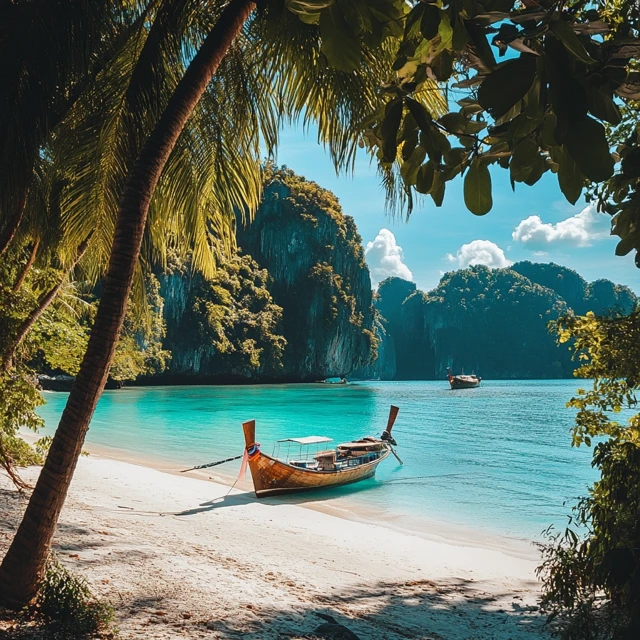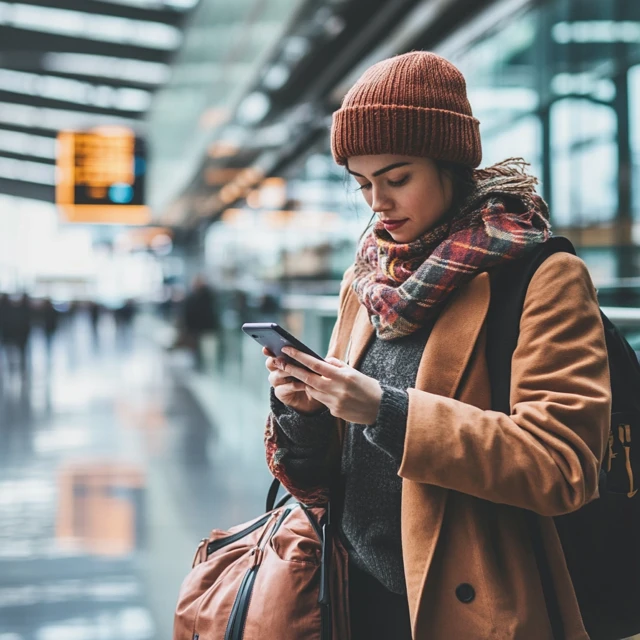Introduction: Traveling Securely & Confidently
Traveling enriches our lives with new experiences, cultures, and perspectives, but it also comes with
potential risks—especially in unfamiliar environments. From safeguarding your belongings to staying healthy,
a proactive approach to safety can significantly reduce stress and ensure a smoother, more enjoyable trip.
In this comprehensive guide, we'll dive into essential practices for protecting your valuables,
handling emergencies, and navigating new destinations confidently. Whether you're a seasoned explorer
or planning your first overseas journey, these guidelines will help you travel with greater peace of mind.
1. Before You Go: Research & Preparation
A safe trip starts long before you step onto the plane or hop in your car. Investing time in
pre-trip research sets you up for success:
- Study Destinations: Check for travel advisories, local laws, and cultural customs.
Understanding these helps you avoid conflicts or unwanted attention.
- Check Health Requirements: Ensure your vaccinations are current, and consider
travel insurance covering medical emergencies—especially for remote regions.
- Secure Documents: Make copies or scans of your passport, visas, and important
confirmations. Keep one set in your luggage (separate from originals) and one in cloud storage.
- Share Itinerary with Someone You Trust: Friends or family can track your
route, making it easier to find you if needed.
Thoughtful prep not only cuts down on unexpected surprises but also builds confidence once you're on the road.
2. Packing Smart & Staying Organized
Overpacking can increase your vulnerability—juggling multiple bags or heavy suitcases leaves you
distracted and can attract thieves. Instead, focus on:
- Carry-On If Possible: Less is more. A smaller bag keeps your hands free and
helps avoid baggage fees or losses.
- Secure Valuables & Electronics: Use a hidden money belt or interior zip
pockets for passport and cash. Keep cameras or laptops out of sight when not in use.
- Travel Locks & Luggage Tags: TSA-approved locks deter casual pilfering,
and a well-labeled bag reduces mix-ups in busy baggage areas.
- Essential Toiletries Only: If you're traveling carry-on, ensure liquids
fit the airline's rules. Solid toiletries reduce spillage risk.
By minimizing baggage and carefully securing crucial items, you'll move around swiftly and
remain alert to your surroundings.
3. Handling Documents, Money & Cards
Financial woes or losing key documents can derail a trip fast. Maintain control with these tips:
- Distribute Cash & Cards: Avoid carrying all currency in one place.
Split it between a wallet, money belt, and maybe a hidden stash in your luggage.
- ATM & Card Safety: Stick to ATMs located inside banks or reputable
shops, scanning for suspicious devices. Notify your bank about travel dates to prevent
frozen accounts.
- Use Hotel Safes Wisely: For extra security, store backups of passports
or surplus cash in the hotel safe—but bring valuables with you if you don't fully trust
the environment.
- Keep Emergency Numbers Handy: Save local embassy contacts, your bank's
lost-card hotline, and a friend's phone. Quick access can save precious time in emergencies.
Spreading out your risk and maintaining backups ensures a stolen wallet or bag doesn't
completely ruin your holiday.
4. Health & Wellness While Traveling
Staying healthy on the road is as vital as avoiding theft or scams. Consider:
- Hydration & Safe Drinking Water: Research tap water safety.
When in doubt, use bottled or filtered water. Keep electrolyte packets on hand if traveling
in hot climates.
- Protect Against Mosquitoes & Bugs: In tropical or forested areas,
use repellent or wear long-sleeved clothing, especially around dusk and dawn.
- Eat Wisely: Street food can be delicious—just watch for cleanliness:
see where locals line up or ensure hot foods are thoroughly cooked. If sensitive,
peel fruits or avoid raw veggies.
- Medication & First Aid Kit: Bring an ample supply of prescription
meds plus a small kit with band-aids, pain relievers, and anti-diarrheal tablets.
A bit of precaution—like frequent hand washing or using sanitizers—goes far in
preventing illness and letting you fully enjoy your destination.
5. Cultural Awareness & Local Etiquette
Every region has its unique norms—knowing and respecting them fosters goodwill
and can shield you from conflicts:
- Dress Modestly Where Required: In conservative countries, covering shoulders
or wearing long pants might be expected at religious sites or public spaces.
- Learn Basic Phrases: A few words of local language—like greetings
or polite expressions—can go a long way in defusing tension or forging connections.
- Be Mindful of Taboos: Research behaviors considered rude—like pointing
with your feet in certain cultures, or showing public affection in others.
- Don't Flash Wealth: Refrain from boasting about money, wearing flashy
jewelry, or flaunting designer items. It can invite unwanted attention or resentment.
Respecting local customs is not just polite—it can also keep you safer by blending in
and avoiding negative perceptions of tourists.
6. Navigating Transport & Accommodation Safely
Moving between destinations—be it via train, taxi, or rideshare—presents potential vulnerabilities.
Similarly, staying in new lodgings requires some vigilance:
- Use Reputable Transport: Opt for official taxis, licensed rideshares,
or train/bus lines. Be cautious of unmarked vehicles offering cheap rides.
- Confirm Ride Details: Check driver name, car plate, and route on apps
before hopping in. If anything seems off, cancel or find another method.
- Choose Well-Reviewed Accommodations: Read user feedback on safety
and location. Hostels or hotels in central, well-lit areas are often better than
cheaper outskirts with limited security.
- Lock Doors & Windows: Even in safe neighborhoods, an unlocked
door invites petty theft. Use deadbolts or chain locks, especially at night.
By prioritizing legitimate transport services and secure lodgings, you drastically lower
your exposure to potential scams or break-ins.
Common Travel Scams & How to Avoid Them
| Scam Type |
Typical Setup |
Prevention |
| Fake Taxi / Rigged Meters |
Driver claims meter is broken or uses inflated flat fare |
Insist on a meter, use official taxi stands or rideshare apps |
| “Free” Friendship Bracelet |
Stranger ties a bracelet on you, then demands payment |
Politely decline any unsolicited gifts, keep hands in pockets if approached |
| ATMs with Skimmers |
Device attached to card slot, capturing your info |
Use well-lit, secure bank ATMs, check slot for tampering |
| Spilled Drink / Distraction |
Accomplice “accidentally” spills to distract while another picks your pocket |
Stay alert, keep valuables secured, step away from commotion |
| Fake Police or Officials |
They demand documents or fines for bogus reasons |
Ask for ID, remain calm, if unsure, contact real authorities or embassy |
Being aware of common tactics helps you quickly recognize suspicious behavior
and respond assertively before falling victim.
7. Handling Emergencies & Contingency Plans
Even the most careful travelers can face unexpected challenges. Prepare for the
worst-case scenarios to minimize panic:
- Embassy Contacts: Save your country's embassy/consulate phone numbers
in each destination, plus local emergency hotlines.
- Travel Insurance Claims Procedure: Know how to file if you need
medical treatment, flight cancelation coverage, or lost baggage compensation.
Keep receipts or police reports.
- Backup Funds: Store an emergency credit card or small stash of
cash separate from your wallet. If your primary gets stolen, you won't be stranded.
- GPS / Offline Maps: If you lose phone signal or Wi-Fi, having
offline maps or a paper copy means you're still able to navigate your route.
Preparing for emergencies doesn't mean expecting them—just ensuring that if something
does go wrong, you can handle it calmly and quickly.
Conclusion
Travel safety isn't about paranoia; it's about foresight and preparedness. From thorough
pre-trip research to safeguarding your belongings and respecting local norms, a bit of
diligence prevents most risks and enhances your overall journey.
Adopting these essential tips frees you to immerse yourself in new cultures, try
diverse cuisines, and meet fantastic people without constant worry. Remember:
vigilance and common sense pave the way for a fulfilling, adventure-packed trip.
Bon voyage—and stay safe out there!

